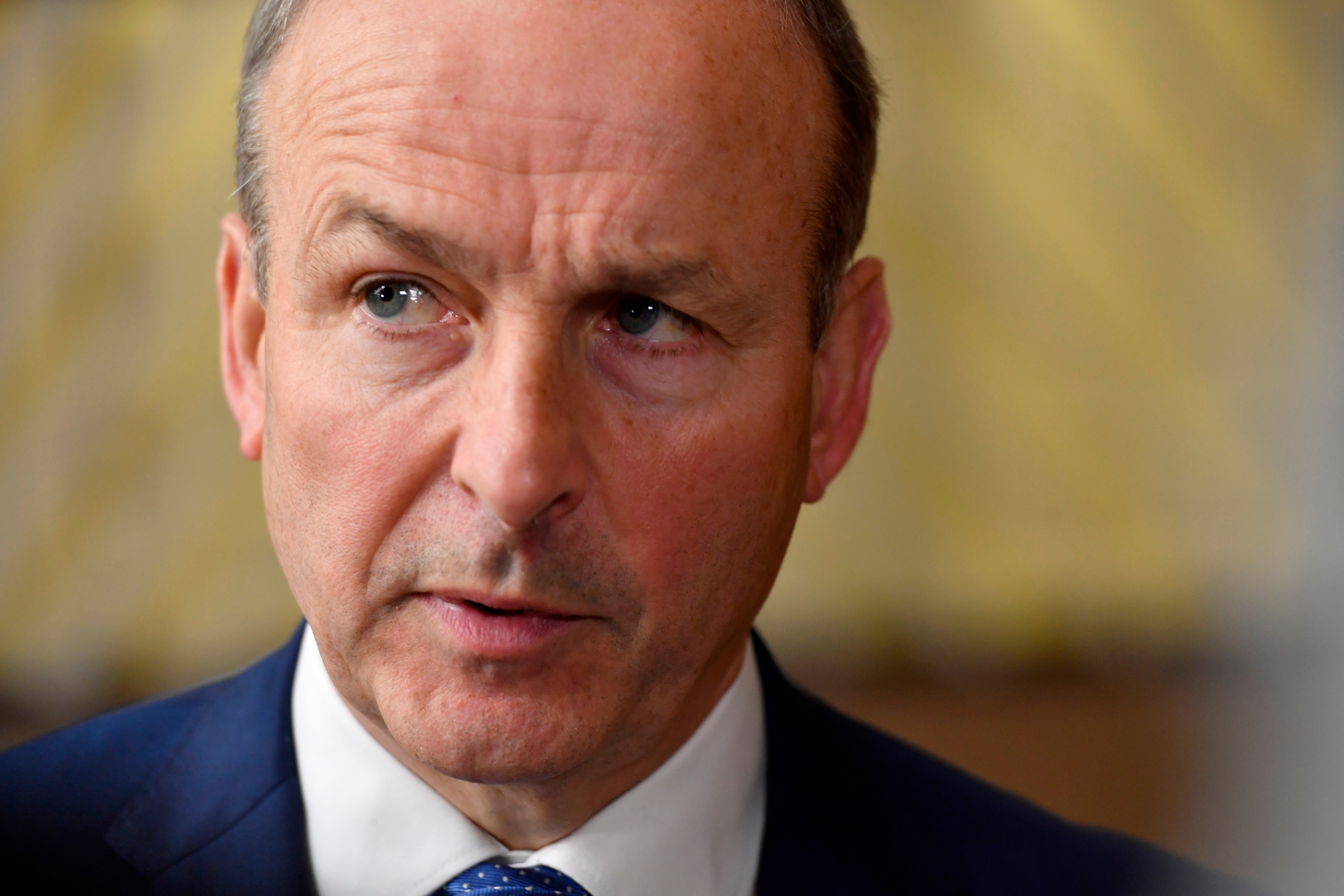Ireland to launch a legal challenge against the UK government over Troubles amnesty bill
Ireland’s government says it will take legal action against British authorities over a controversial law that gives some immunity from prosecution for offenses committed during three decades of sectarian violence

Ireland's government said Wednesday it will take legal action against British authorities over a controversial law that gives some immunity from prosecution for offenses committed during three decades of sectarian violence.
Irish Deputy Prime Minister Micheál Martin said that “after much thought and careful consideration,” his government is launching a legal challenge against the Legacy and Reconciliation Bill, which critics say shuts down access to justice for victims and survivors.
The law, passed in September, stops most prosecutions for alleged killings by militant groups and British soldiers during “the Troubles” — the three decades of violence in which more than 3,500 people died.
Those who cooperate with the new Independent Commission for Reconciliation and Information Recovery — loosely modeled on South Africa’s post-apartheid Truth and Reconciliation Commission — can be granted immunity from prosecution. The new law also halts future civil cases and legacy inquests.
It was passed despite strong opposition from political parties and victims’ organizations in Northern Ireland and the Irish government.
The 1998 Good Friday peace accord largely ended the decades of violence, and former British Prime Minister Boris Johnson, who proposed the new bill, said it would enable Northern Ireland to “draw a line under the Troubles.”
But those who lost loved ones at the hands of Irish republican and British loyalist militias and U.K. troops say the new law will airbrush the past and allow killers to get away with murder.
Martin said his case would argue that aspects of the law are incompatible with the U.K.'s obligations under the European Convention on Human Rights. Ireland's government has repeatedly made its concerns known and urged the British government to pause the legislation, he said.
“I regret that we find ourselves in a position where such a choice had to be made," he said, adding that the immunity provisions would “shut down existing avenues to truth and justice for historic cases."
“Even in cases in which immunity is not granted, reviews by the proposed body, the Independent Commission for Reconciliation and Information Recovery, are not an adequate substitute for police investigations, carried out independently, adequately, and with sufficient participation of next of kin," Martin said.
U.K. veterans’ groups are among the few organizations to have welcomed the legislation, which lifts the threat of prosecution from troops who served in Northern Ireland.
Amnesty International was among groups who welcomed Wednesday's news.
“The U.K. government doggedly pursued this legislation which shields perpetrators of serious human rights violations from being held accountable. It’s important that the Irish government takes this stand," said Grainne Teggart, of Amnesty International U.K.
“This challenge is vital for victims here and around the world who face the prospect of similar state-gifted impunity," Teggart added.
Subscribe to Independent Premium to bookmark this article
Want to bookmark your favourite articles and stories to read or reference later? Start your Independent Premium subscription today.
